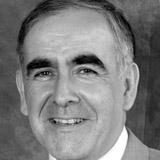 With every elective student that joins our unit, I get a vivid flashback of my own electives. No matter how much water has flowed under the bridge since then, something particularly special endures about these less structured educational episodes. Even if undertaken in a local hospital, the elements of summer holiday, change of routine, and freshness suffuse the experience for both student and clinician.
With every elective student that joins our unit, I get a vivid flashback of my own electives. No matter how much water has flowed under the bridge since then, something particularly special endures about these less structured educational episodes. Even if undertaken in a local hospital, the elements of summer holiday, change of routine, and freshness suffuse the experience for both student and clinician.
My “formal” electives were a blast. Hamburg in the summer is green, leafy, and sunny—with water a constant presence from the huge harbour to the Alster lakes in the centre of the city. The first summer was spent in a large hospital there, St Georg, whose Wilhelmine ward blocks radiated the spirit of the great German pioneers of 19th century medicine. The second elective was in the racier setting of the small Harbour Hospital beside the red light district of the Reeperbahn, transvestites and sailors prominent among the clientele.
The trainee doctors (Stationsarzt) were attached to specific wards, and nurses, care attendants, doctors, and students started the day with a shared breakfast of ham and cheese rolls with excellent coffee. Marrying my rudimentary German with the local Plattdeutsch dialect of the patients—an unholy scramble of German, English, and Dutch—was all part of the challenge and humour that characterised the elective. When placing the first male urinary catheter of my career in Hamburg, my sweaty concentration was such that I actually stopped and looked left when the straight faced doctor told me to stop pushing as it was coming out the patient’s ear.
Even my exposure to new hierarchies was of lasting value. During my presidency of our European society of geriatric medicine, it was helpful to understand that departments of internal medicine in Germany and Austria have tiny numbers of Chefarzts (senior consultants) and most of the rest are Oberarzts (a sort of permanent junior consultant), which leads to a different dynamic compared to countries where specialists are all appointed on relatively equal terms.
But with the perspective of time, I realise that I had a different form of elective during the previous two summers when I worked as a barman in the Royal Albert Hall during the BBC Proms. Stumbling upon the job by chance, I was exposed to an extraordinary range of music and ensembles, as well as revealing glimpses into how large teams work together.
The last hour of morning rehearsal coincided with my lunch break, and from various vantage points in this great hall I munched a sandwich and observed the greats—including Solti, Haitink, Boult, Boulez, and Rattle—extract the best from the great orchestras of the world. The BBC Symphony Orchestra is the workhorse of the Proms, and the difference in how one ensemble responded to a range of conductors was the most insightful workshop in leadership I could ever have experienced.
Musicians, like the members of our multidisciplinary teams, are highly skilled and independent practitioners, and there are many parallels in the challenges of countering our centrifugal urges and maximising the potential of the group.
The most successful conductors combined deep knowledge and an unerring ear, and demonstrated an amazing range of ways for dealing with both talent and waywardness. Respect seemed to be a key factor, whether tinged with a disciplinary edge for the stern Georg Solti, or the trusting and deceptively relaxed bonhomie of Gennadi Rozhdestvensky.
The exposure to the music, and the intensity of the public’s attachment to these great works, also laid a foundation for my interest in the medical humanities—with an emphasis on music and the importance of receptive participation in cultural activities. The rapt attention of over 5000 people to the complex and strange beauty of a long Mahler choral symphony bolsters faith in a widely shared vision of our simultaneously limitless potential and fragile vulnerabilities. It also reassures me that, with the right approach, complexity can be brokered with large groups of people.
So as I ask our students about what they are planning for electives, sometimes assisting in sourcing attachments or providing a place or involvement in a medical humanities project with us, I get a momentary flash of anxiety that they will not make the most of this wonderful opportunity.
However, I am always reassured when I meet them again, and find that those who through penury or family circumstances opt for a local elective are as likely to have an enjoyable, educational, and above all memorable elective as those who travel greater distances.
Desmond (Des) O’Neill is a geriatrician and cultural gerontologist in Dublin. He is also the local lead for the IAGG-ER Congress in 2015.